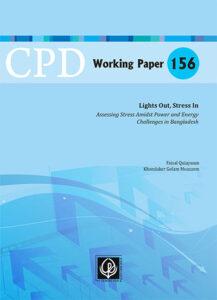 This study examines the psychological impact of energy crises on households, utilising the Perceived Stress Scale-10 (PSS-10) to measure the stress induced by disruptions in electricity, gas, and fuel supply and pricing. Through a multivariate analysis incorporating Ordinary Least Squares (OLS) regression, Simultaneous-Quantile Regressions (SQR), Random Forest (RF) and Ordered Probit models, the research identifies the key socio-demographic and environmental factors influencing household stress. Our findings reveal that urban residency, low-income households, older individuals, and those with low environmental awareness are particularly vulnerable to stress during energy crises. Regional disparities and attitudes towards nuclear and renewable energy also significantly shape stress responses. The study emphasises the need for psychologically-informed energy policy, advocating for the inclusion of stress metrics in energy planning to enhance resilience and address the multi-dimensional nature of energy insecurity. This research contributes a novel, human-centric perspective to energy policy, urging policymakers to integrate psychosocial resilience alongside traditional technical and economic considerations in the design of energy interventions.
This study examines the psychological impact of energy crises on households, utilising the Perceived Stress Scale-10 (PSS-10) to measure the stress induced by disruptions in electricity, gas, and fuel supply and pricing. Through a multivariate analysis incorporating Ordinary Least Squares (OLS) regression, Simultaneous-Quantile Regressions (SQR), Random Forest (RF) and Ordered Probit models, the research identifies the key socio-demographic and environmental factors influencing household stress. Our findings reveal that urban residency, low-income households, older individuals, and those with low environmental awareness are particularly vulnerable to stress during energy crises. Regional disparities and attitudes towards nuclear and renewable energy also significantly shape stress responses. The study emphasises the need for psychologically-informed energy policy, advocating for the inclusion of stress metrics in energy planning to enhance resilience and address the multi-dimensional nature of energy insecurity. This research contributes a novel, human-centric perspective to energy policy, urging policymakers to integrate psychosocial resilience alongside traditional technical and economic considerations in the design of energy interventions.
Authors: Khondaker Golam Moazzem, Faisal Quaiyyum
Pubication Period: April 2025


